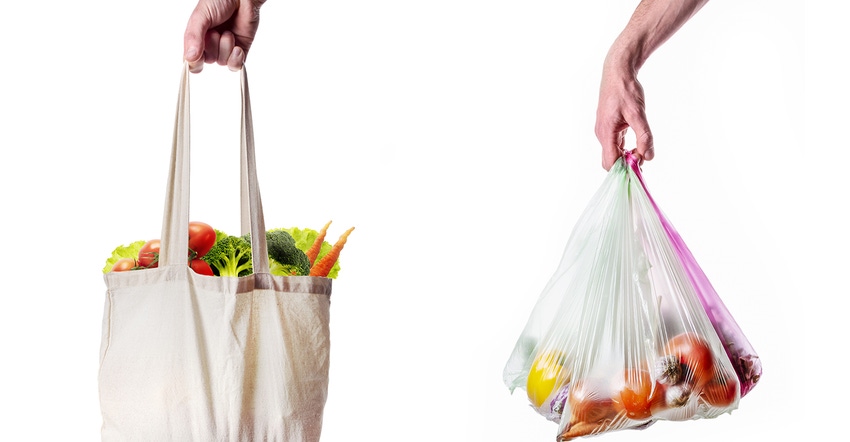New Zealand’s Ban on All Single-Use Produce Bags Is a World First
The ban will eliminate 150 million plastic produce bags from circulation each year, according to the New Zealand government.
July 7, 2023

New Zealand has become the first country in the world to ban single-use produce bags at grocery stores.
New Zealand shoppers already were expected to bring their own shopping bags to supermarkets. Effective July 1, they also are being asked to carry their own reusable bags for fruits and vegetables. The latest move is part of a wider government campaign against single-use plastics.
In July 2019, New Zealand no longer allowed stores to provide single-use shopping bags with handles that are made of plastic up to 70 microns in thickness. This latest measure takes plastic waste-reduction efforts a step further by banning recyclable, biodegradable, or plant-based plastic. Instead, customers are encouraged to bring their own mesh, paper, or canvas bags for their produce.
The produce bag ban isn't the only new plastic restriction that went into effect in New Zealand on July 1. The country also banned the manufacture, sale, and distribution of single-use plates, bowls, and cutlery, and stores will only be allowed to offer single-use plastic straws to people with disabilities or health needs.
“Plastic is an ever-present part of our lives. But it is often not disposed of correctly and ends up in the environment, breaking down into microplastic pollution,” said James Palmer, New Zealand’s Chief Executive at the Ministry for the Environment. “This is a growing problem in our freshwater and marine environments.”
Palmer said he expects that the new ban will eliminate 150 million plastic produce bags — or 17,000 plastic bags every hour — from circulation each year.
Shaun Lewis, New Zealand’s Director of Waste Stream Policy at the Ministry for the Environment, said: “The plastic products the government is phasing out are often used only once before becoming waste or litter. They are challenging to recycle, impact the effectiveness of our recycling system, and endanger our marine life.”
Other countries worldwide have been slowly moving away from single-use plastic bags — either imposing fees on their use or banning them from stores. New Zealand is the first to extend a nationwide ban on plastic produce bags.
Through the United Nations Environment Assembly, representatives from 175 nations are working through the end of 2024 to forge an international plan to end plastic pollution. As of July 2021, 77 countries have passed some sort of full or partial ban on plastic bags. Another 32 countries — mostly in Europe — have opted instead to charge a fee or tax to limit plastic bag use, according to Statista.com, a provider of market and consumer data.
As of February 2021, eight US states — California, Connecticut, Delaware, Hawaii, Maine, New York, Oregon, and Vermont — had passed laws that prohibited stores from providing single-use plastic shopping bags.
After banning single-use plastic checkout bags from stores in 2016, California will be the first state in the nation to outlaw plastic produce bags. The ban will take effect on Jan. 1, 2025.
About the Author(s)
You May Also Like




